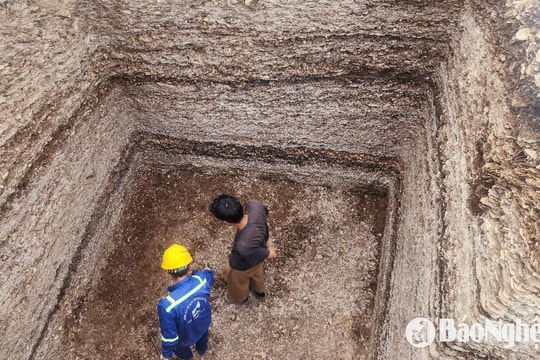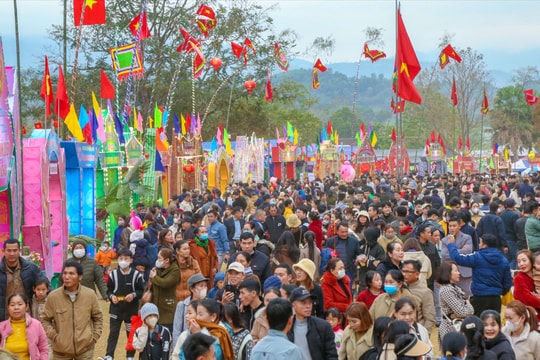Discussing solutions to protect, preserve and promote the value of Lang Vac archaeological site
(Baonghean.vn) - The workshop "Vac Village Archaeological Relic: Historical and Cultural Values" was held to assess the current situation and propose solutions to preserve and promote the value of Vac Village Archaeological Relic in association with the development of heritage economy and tourism.
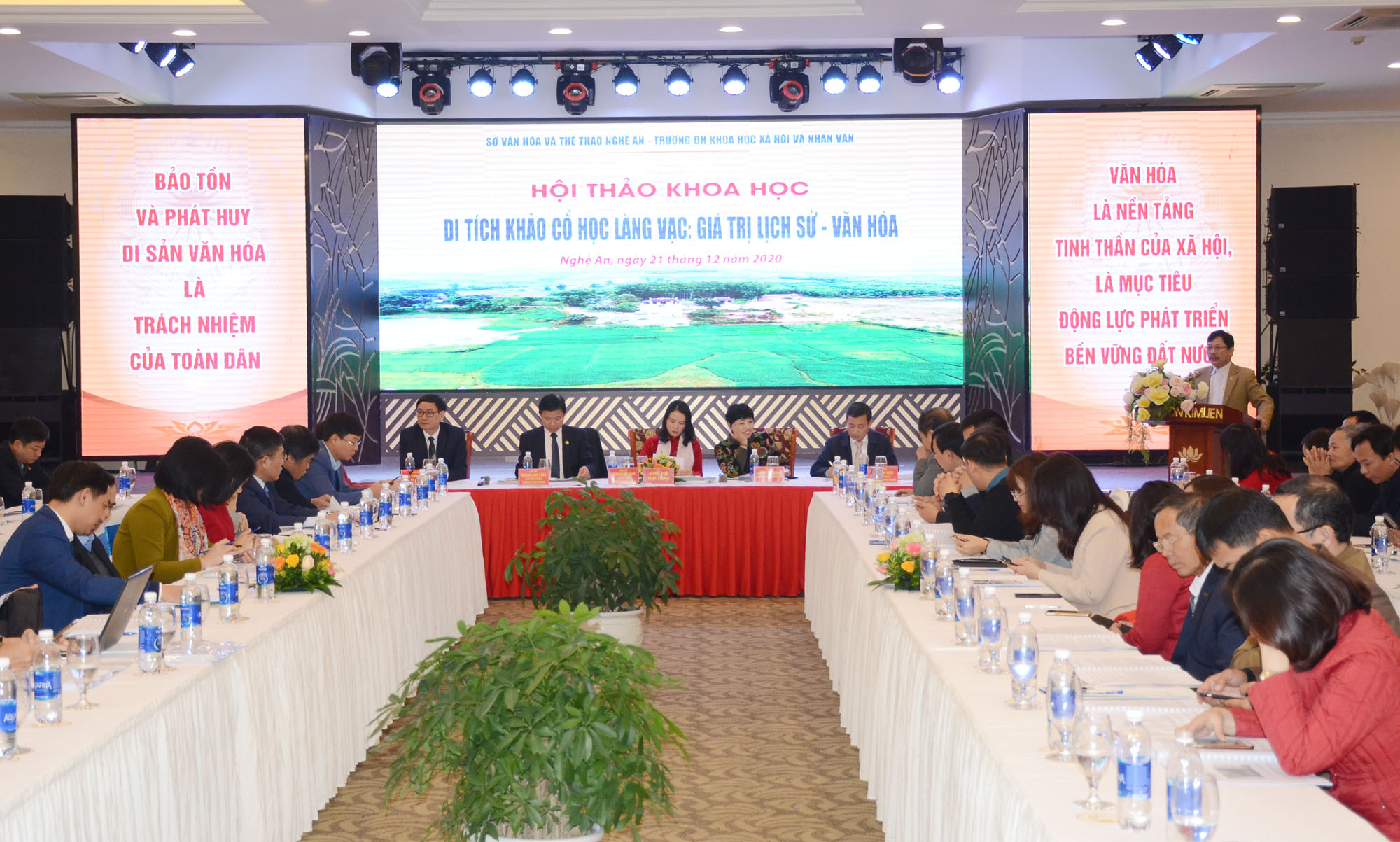 |
| The workshop was attended by many scientists and managers inside and outside the province. Photo: Thanh Chung |
On the morning of December 21, with the consent of the People's Committee of Nghe An province, the Department of Culture and Sports of Nghe An coordinated with the University of Social Sciences and Humanities, Vietnam National University, Hanoi to organize the scientific workshop "Vac Village Archaeological Site: Historical and Cultural Values".
Attending the workshop were scientists from inside and outside the province; representatives of leaders of departments, branches and localities in the province.
Center of Dong Son culture
The workshop was organized to gather a system of documents on investigation, excavation and research of Lang Vac relic; through that, identify cultural characteristics, affirm the historical and cultural value of Lang Vac relic; determine the relationship of Lang Vac relic with archaeological relics of the Hung King era in Nghe An in particular and in the whole North and Southeast Asia in general; assess the current situation and propose solutions to preserve and promote the value of Lang Vac archaeological relic in association with the development of heritage economy and tourism.
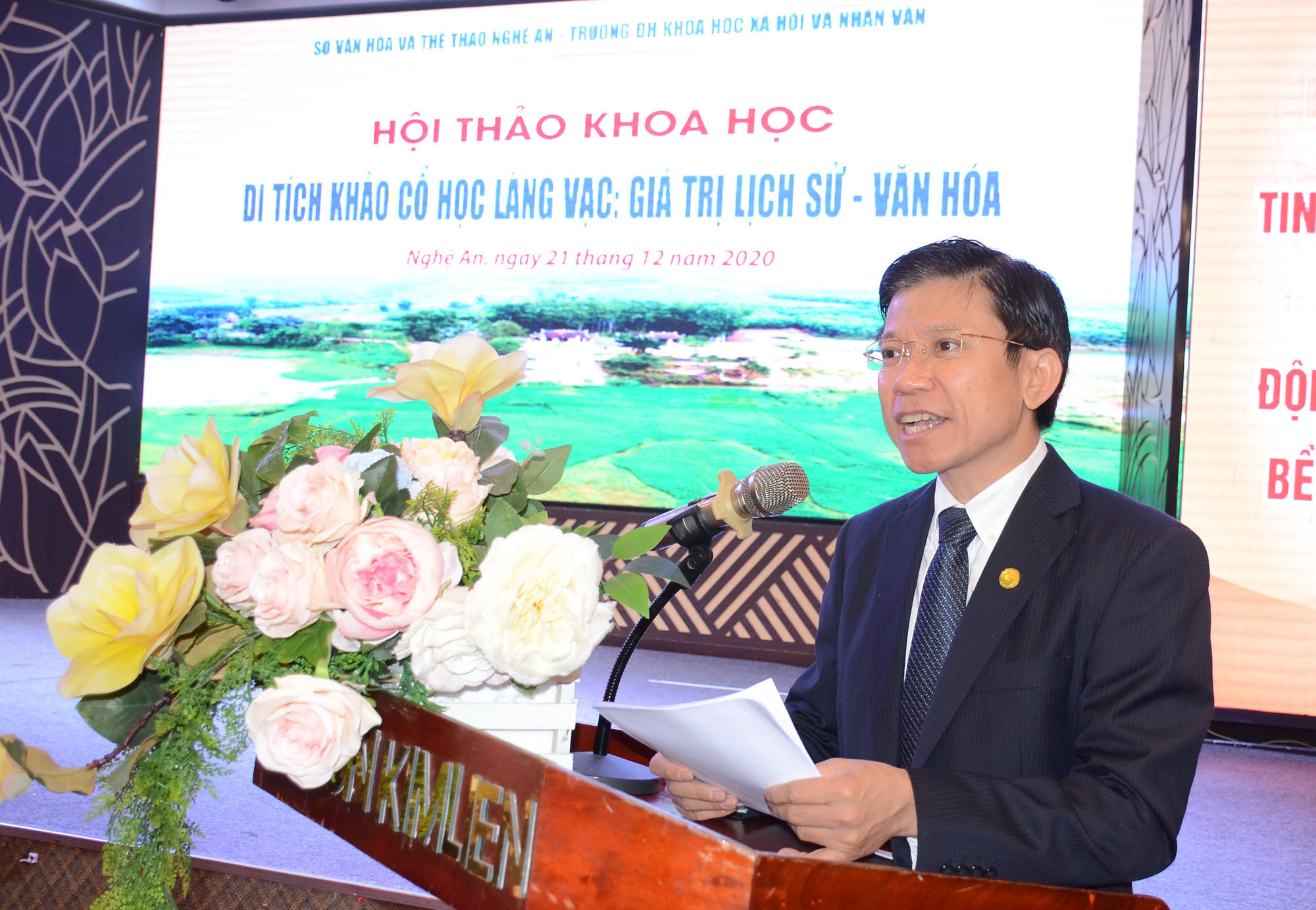 |
| Prof. Dr. Hoang Anh Tuan - Vice Rector of the University of Social Sciences and Humanities (Vietnam National University, Hanoi) presented the opening remarks of the conference. Photo: Thanh Chung |
Typical of the Stone Age are the sites of Tham Om (Quy Chau district), Doi Dung, Doi Rang (Thanh Chuong district), Dong Truong (Anh Son district), Tham Hoi (Con Cuong district), Con So Diep (Quynh Luu district)... The Bronze Age has the typical Pre-Dong Son and Dong Son cultures with the sites of Den Doi (Quynh Luu district), Ru Tran (Nam Dan district), Dong Mom (Dien Chau district), Lang Vac (Thai Hoa town).
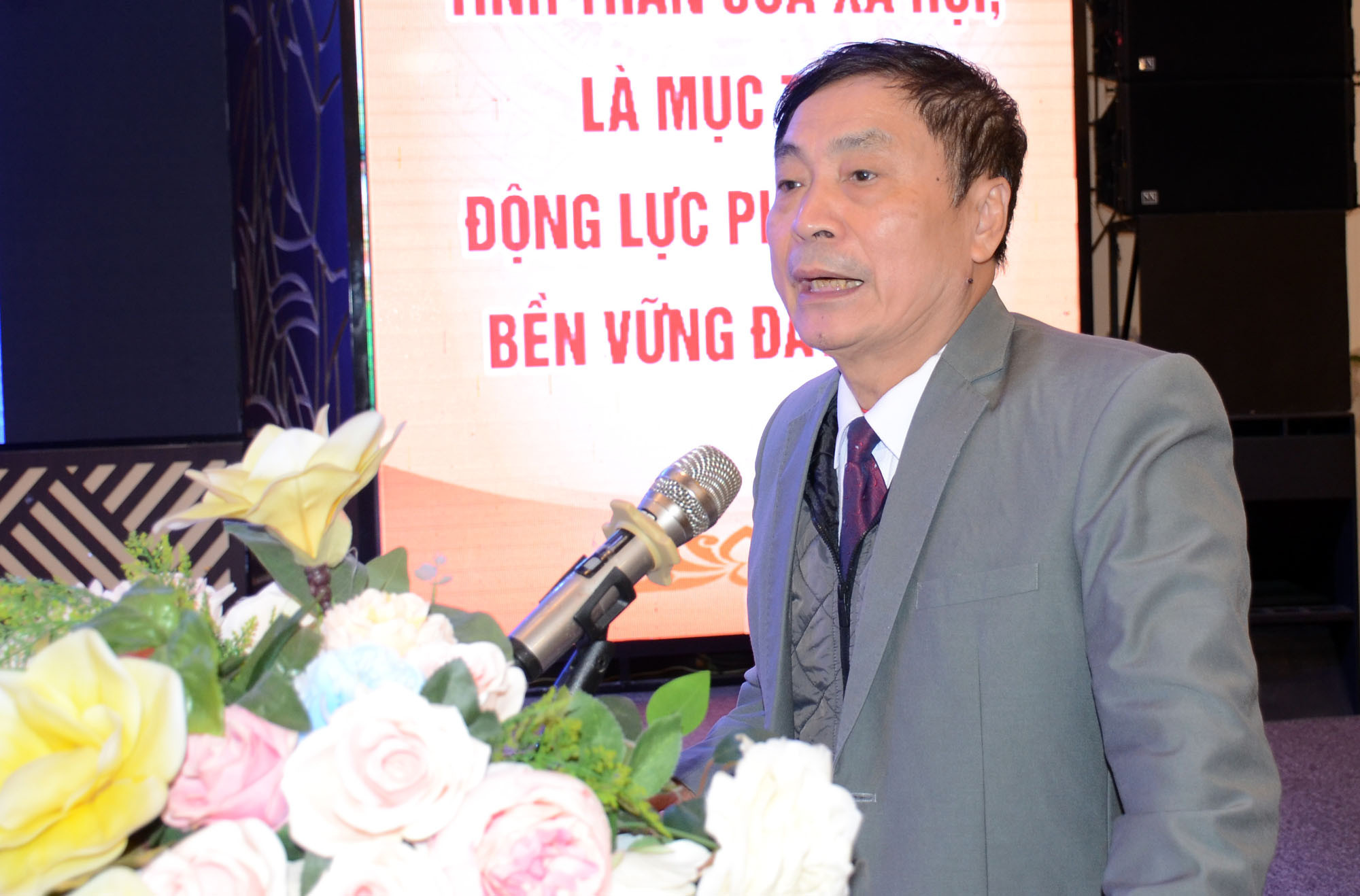 |
| Associate Professor Dr. Nguyen Cong Khanh, Vinh University presented the paper From the Lang Vac site and Dong Son culture in Nghe Tinh, further discussing the location of Nghe An during the Hung King period. Photo: Thanh Chung |
Lang Vac can be compared with the famous Dong Son cultural relics in the Red River basin such as Vinh Quang, Lang Ca... if not to say it can be in a higher position. Lang Vac heritage dating back 2500-2000 years ago has contributed to maintaining the vitality of Dong Son, contributing to preserving the national cultural identity, an important evidence to help the cause of cultural resistance against the radical assimilation policy of the Northern feudalism.
After nearly 5 decades since its first discovery in 1972 and the results obtained through 3 times of exploration and excavation, scientists and cultural managers have affirmed that Lang Vac relic has made many important contributions to the historical and cultural process of the nation. Lang Vac archaeological site was ranked as a National Historical Relic by the Ministry of Culture - Information, now the Ministry of Culture, Sports and Tourism in Decision No. 61/QD - BVHTT dated September 13, 1999.
Promoting heritage values
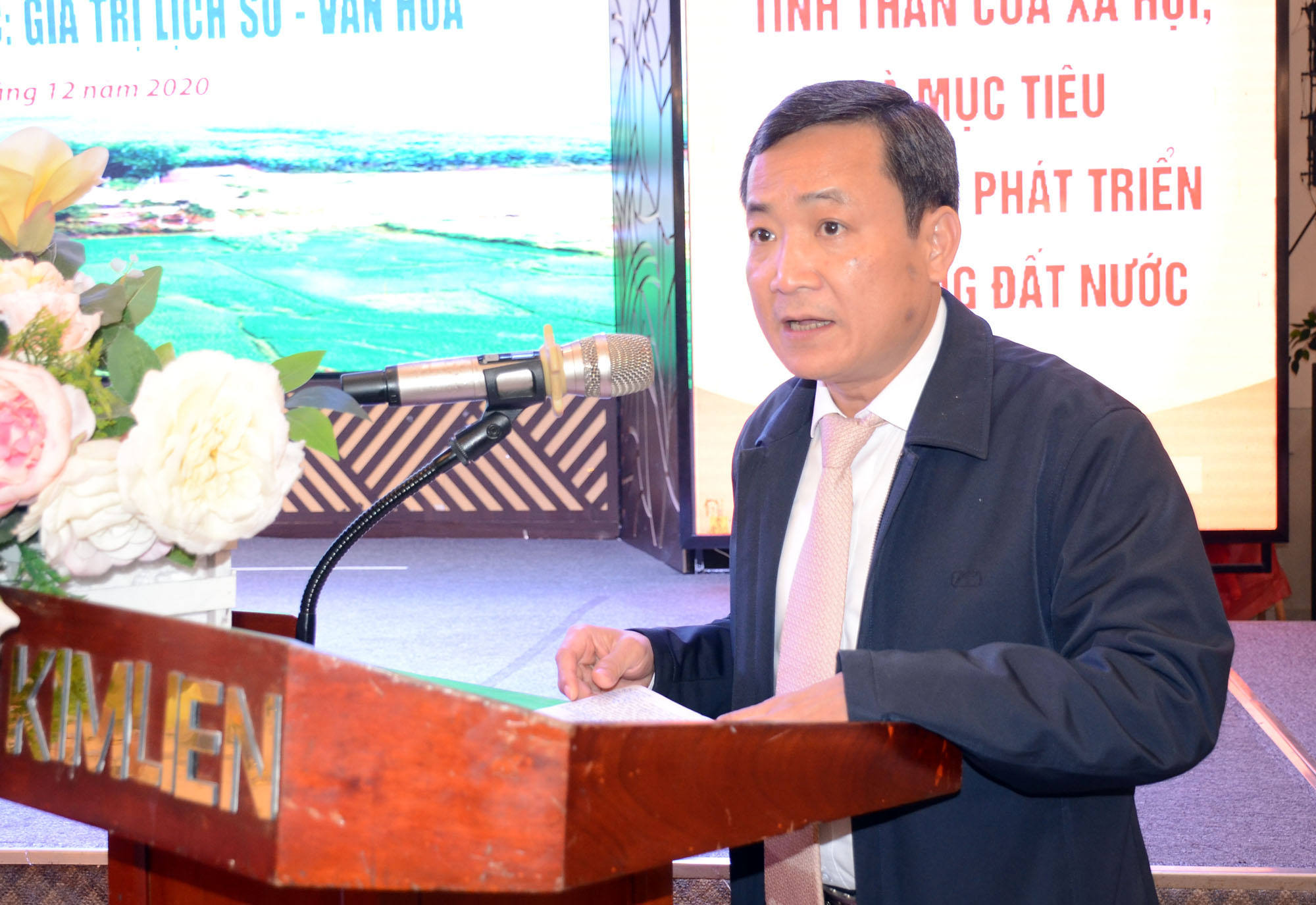 |
| Chairman of Thai Hoa Town People's Committee Pham Chi Kien reports on Lang Vac Archaeological Site in the master plan for socio-economic development of Thai Hoa Town. Photo: Thanh Chung |
Scientists and managers have also pointed out the shortcomings and limitations in preserving and promoting the value of the Lang Vac National Historical Site. Accordingly, the research and assessment of the value of the Lang Vac site is not yet complete and systematic, and no comprehensive work has been published. In the current socio-economic development conditions, as well as many other archaeological sites, the Lang Vac site is being affected by many objective and subjective causes, and no research has been conducted to assess the status of the site, its current reserves, its existing and potential risks...
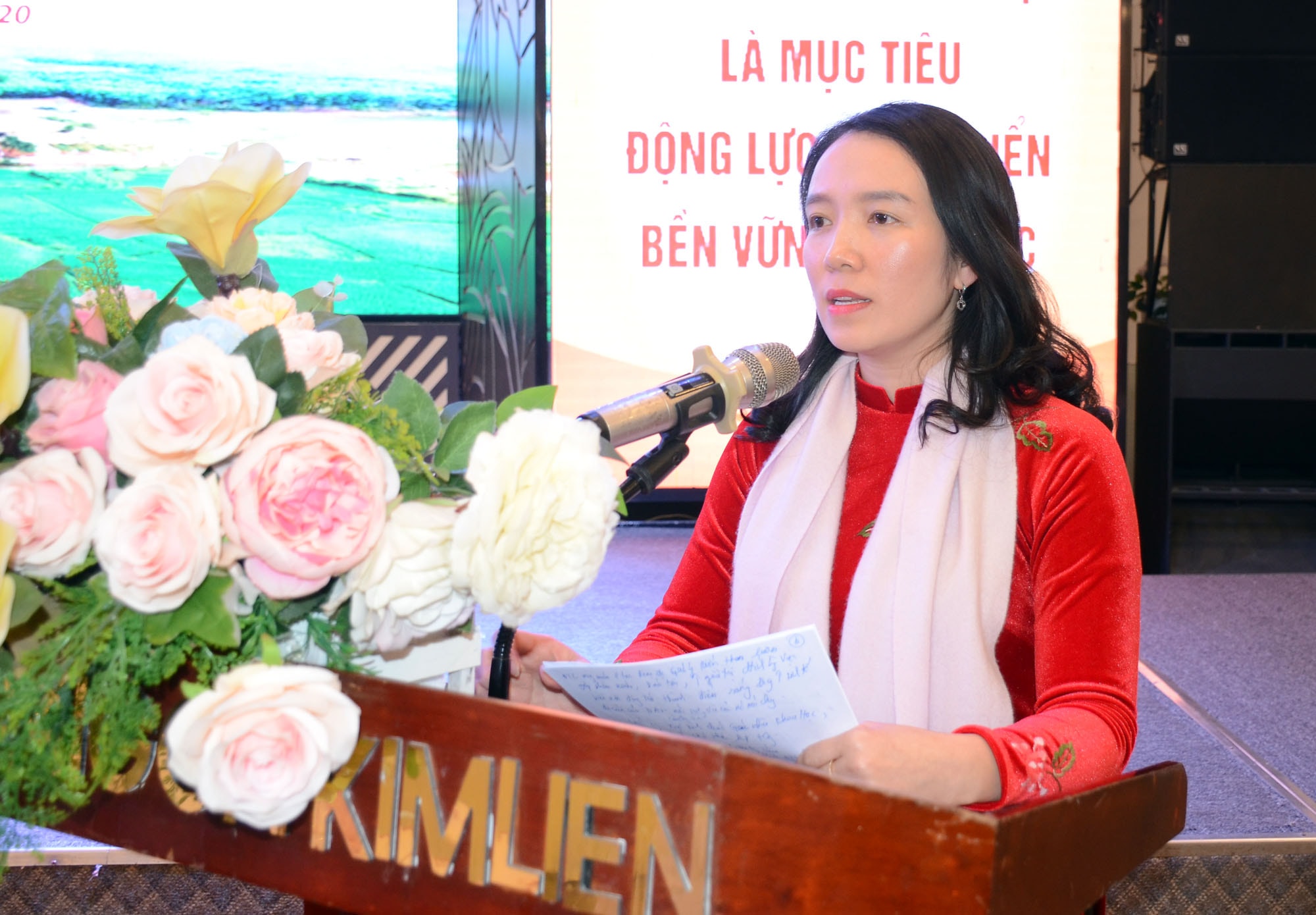 |
| Director of the Department of Culture & Sports Tran Thi My Hanh concluded and closed the Scientific Workshop. Photo: Thanh Chung |
Through the organization of the Scientific Workshop, the Department of Culture and Sports of Nghe An will advise the People's Committee of Nghe An province and the People's Committee of Thai Hoa town to develop plans, programs and projects of the heritage management process; propose effective and feasible solutions to protect, preserve and promote the archaeological heritage of Lang Vac in a sustainable and effective manner, contributing to the preservation of traditional cultural heritage and creating momentum for local socio-economic development./.

